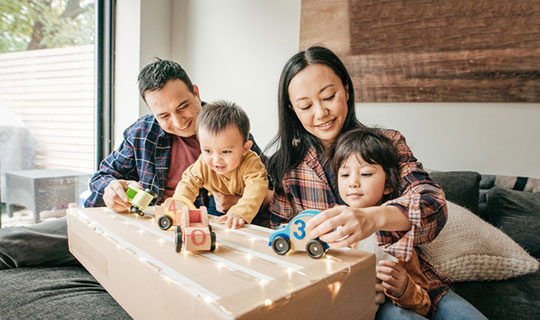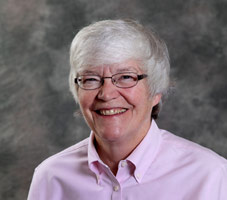
We recognize our patients and families have many questions regarding the novel Coronavirus, also known as COVID-19, and how RWJBarnabas Health (RWJBH) is responding to this public health incident. Additionally, we understand concerns surrounding the safety of our youngest patients and what our children’s hospitals are doing to prepare for and prevent the spread of COVID-19.
What is novel coronavirus?
A novel coronavirus is a new coronavirus that has not been previously identified. The virus causing coronavirus disease 2019 (COVID-19) is not the same as the coronavirus that commonly circulates among humans and causes mild illness like the common cold.
What is COVID-19?
Coronavirus (COVID-19) is a respiratory illness that can spread from person to person that was first identified in Wuhan, China. Patients with COVID-19 have mild to severe respiratory illness symptoms including:
- Fever
- Cough
- Shortness of breath
Additional symptoms include:
- Chills
- Repeated shaking with chills
- Muscle pain
- Headache
- Sore throat
- New loss of taste or smell
Symptoms that indicate an emergency include:
- Trouble breathing
- Persistent pain or pressure in the chest
- Confusion or inability to arouse
- Bluish lips or face
How does COVID-19 spread?
COVID-19 spreads from person to person. The virus is thought to spread between people who are in close contact with one another (within 6 feet) through respiratory droplets produced when an infected person coughs or sneezes. It may also be possible that a person can get COVID-19 by touching a surface or object that has the virus on it and then touching their own mouth, nose or eyes; however, this is not the main way the virus is thought to spread.
Who is most at risk for catching COVID-19?
Much like the flu, individuals with compromised immune systems are at a higher risk for catching COVID-19, including the elderly and those with serious medical conditions.
What is the risk of my child becoming sick with COVID-19?
According to the CDC, children do not seem to be at higher risk for getting COVID-19 than adults. While some children and infants have been diagnosed with COVID-19, adults make up most of the known cases to date. You can learn more about who is most at risk for health problems by visiting the CDC’s current Risk Assessment page.
Are the symptoms of COVID-19 different in children than in adults?
No. The symptoms of COVID-19 are similar in children and adults. However, children with confirmed COVID-19 have generally presented with mild symptoms. Reported symptoms in children include cold-like symptoms, such as fever, runny nose, and cough. Vomiting and diarrhea have also been reported.
What is RWJBarnabas Health doing to keep my kids and the hospital safe?
- Visitor Restrictions: Only one parent/guardian will be permitted to visit our inpatient facilities. At our outpatient locations, only one adult will be permitted to accompany each patient to an appointment, unless an aide or assistant is required.
- Increased Screening: Upon arrival to one of our facilities you can expect screening of patients and those accompanying them for travel history, exposure to a COVID-19 individual, and any clinical symptoms at every point of entrance. We will be on high alert for any individuals with the following signs and/or symptoms:
- Fever
- Respiratory infection
- Cough and/or shortness of breath
- Sore throat
- And/or have traveled and been in contact with travelers
Additional symptoms include:
- Chills
- Repeated shaking with chills
- Muscle pain
- Headache
- Sore throat
- New loss of taste or smell
Symptoms that indicate an emergency include:
- Trouble breathing
- Persistent pain or pressure in the chest
- Confusion or inability to arouse
- Bluish lips or face
- Event Cancellations: To prevent the spread of COVID-19, RWJBH has cancelled all internal and external meetings and events with an attendance of more than 50 people.
- Training Drills: We have been practicing readiness drills at each of our hospitals to assess and address the potential needs of all of our patients and employees.
- Isolation Rooms: RWJBH has identified and designated areas in each of our hospitals to use in order to keep COVID-19 patients separate from other patients and families.
- Following Recommendations: We are following all guidelines and recommendations set by the Centers for Disease Control (CDC) and the New Jersey Department of Health (NJDOH). We will continue to monitor and prepare our protocols, facilities, and work force based off of these continuously updated recommendations. We are taking all necessary precautions to protect our patients, families and employees.
Should I keep my child’s appointment?
Yes. You and your child will face no additional risk coming to one of our facilities for your scheduled appointment. We recommend not postponing necessary and important care unless you or your child is experiencing flu or cold like symptoms.
Why are we being asked about our travel history?
In order to keep all patients, families, and employees safe we are asking every individual who enters one of our hospitals about their recent international and domestic travel – even employees. This is especially important because CDC guidelines now list multiple countries as nations of concern for potential COVID-19 patients. This screening measure helps us prevent possible exposure to COVID-19 even if the individual isn’t showing signs or symptoms of illness.
How can I protect my family?
Currently there is no vaccine to prevent COVID-19, but the CDC recommends these other ways to stay healthy and prevent the spread of illness:
- Practice social distancing by avoiding crowds or crowded spaces
- Social distancing means staying at least 6 feet away from others
- Clean your hands often
- Wash your hands often with soap and water for at least 20 seconds especially after you have been in a public place or after blowing your nose, coughing or sneezing.
- If soap and water are not readily available, use a hand sanitizer.
- Avoid touching your eyes, nose, and mouth
- Keep your children away from others who are sick
- Stay home and keep your children home if they are ill
- Teach your children to cough and sneeze into a tissue, their arm or elbow – not their hands
- Avoid travel to highly infected areas
The CDC recommends wearing cloth face coverings in public settings where other social distancing measures are difficult to maintain (e.g., grocery stores and pharmacies), especially in areas of significant community-based transmission.
My child is sick and I suspect COVID-19, what should I do?
We advise that you call your child’s pediatrician and discuss the symptoms. Based on your discussion they can guide you on appropriate next steps. Do not come to the hospital unless advised by your child’s pediatrician. However, if your child is experiencing a health care emergency, dial 911.
How to plan your day now that schools are closed & social distancing has been put into practice
The American Academy of Pediatrics recommends keeping your kids’ days as routine and scheduled as possible:
- Read books with your child to strengthen your bond and help their development.
- Make time for active play by bringing out the blocks, balls, jump ropes and buckets or playing games that gets their creativity going.
- Keep an eye on screen time and play video games or go online with your child whenever possible to make sure the time is structured and limited.
Ideas to keep you and your family busy while still practicing social distancing:
- Read
- Take a virtual tour of your favorite museum (or one you’ve been meaning to visit)
- Go on a family hike
- Bake cookies
- Make that recipe you’ve been sitting on (or discover a new recipe)
- Get a head start on spring cleaning
- Video chat
- Meditate
- Nap
- Bring out the board games or take on that 1,000 piece puzzle
- Start crafting
- Missing sports? Watch a sports documentary or revisit an old game
How to talk to your kids about COVID-19
Much of the news coverage on COVID-19 can be overwhelming for parents and frightening for children – the American Academy of Pediatrics has provided tips for parents and caregivers on how to filter this information and present it in a way that is easy for children to understand:
- Simple reassurance: Remind them that researchers and doctors are learning as much as they can, as quickly as they can, to keep everyone safe.
- Give them control: Remind them of what they can do to stay safe like washing their hands, coughing into a tissue or their elbows, and getting enough sleep.
- Watch for signs of anxiety: Children might not have the words to express how they’re feeling but you’ll see signs of worry including increased crankiness and trouble sleeping.
- Monitor their screen time: Keep younger children away from frightening images they may see on TV, social media, etc. For older children, talk about what they’re hearing and correct any misinformation or rumors.
- Be a good role model: COVID-19 doesn’t discriminate and neither should we.
For additional information and rolling updates on COVID-19, please refer to:
The NJ Department of Health (https://www.nj.gov/health/cd/topics/covid2019_resources.shtml) or via hotline at 1-800-222-1222
The Centers for Disease Control and Prevention (https://www.cdc.gov/coronavirus/2019-ncov/index.html)
The American Academy of Pediatrics Healthy Children (https://www.healthychildren.org)
 By Margaret (Meg) Fisher, MD, FAAP, Pediatric Infectious Disease Specialist and Chair of the Department of Pediatrics and Medical Director for The Unterberg Children's Hospital at Monmouth Medical Center, an RWJBarnabas Health Facility
By Margaret (Meg) Fisher, MD, FAAP, Pediatric Infectious Disease Specialist and Chair of the Department of Pediatrics and Medical Director for The Unterberg Children's Hospital at Monmouth Medical Center, an RWJBarnabas Health Facility